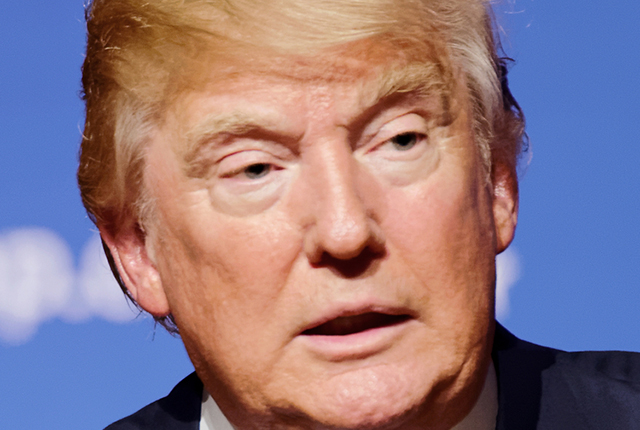Cancer-related costs scuttle recovery prospects

Leroy Dzenga: Features Writer
In October 2015, 23-year-old Tapiwa Sachiti was diagnosed with Osteoblatoma, a rare cancer which eats the bone and causes swelling. The rarity of her case means she requires specialist attention to contain the condition. Unfortunately, this requires her to travel to India for treatment.“After the diagnosis, doctors said that my best hope is through limb salvaging where they try to save the leg by replacing the bone with a prosthesis,” Sachiti said.
Costs, however, stand as an impediment between Sachiti and relief.
“For me to go to India for the surgery I need $42 950 to cater for all the costs. We only have $7 000,” she said.
The breakdown of her costs are — $14 600 for transport, accommodation $2 000 for a five months period, $6 200 for a biopsy review, neo-adjuvent chemotherapy cycles $5 800, assessment of disease status $1 000, limb salvage $5 750, post-operative chemotherapy $4 350 and a provisional $2 250 to cater for any unseen emergencies.
Since 2015, various initiatives and projects including musical concerts, have been held to try and raise money but the funds are still way off the mark.
The delay in raising the adequate finances for her travels and treatment have made it difficult for her to walk.
“The cancer cells are building up and I suffer from swelling. I cannot work and I fear that the cancer might spread if I don`t get treatment,” Sachiti said.
If Sachiti does not travel to India the only option left for her will be amputation, which is the locally available option.
“The only alternative to the limb salvaging process is amputation from mid-thigh area but time is moving and I am afraid I might not be eligible for both,” she said.
All she holds on to now is hope that the frantic efforts by her friends and family will bear fruit.
The cancer has slowed her down, she was already following her dream of studying psychology when she was diagnosed.
“I was in my first year studying psychology. I want to be a sport psychologist because I am interested in sport and psychology. However, I have not been able to report for school because of the pain,” Sachiti said.
At the moment Sachiti is relying on dosages of morphine to get her through the days. Her dream to assist underprivileged children hangs in the balance as she is in need of help herself.
Sachiti is not isolated in her battle against cancer, as many Zimbabweans face the high treatment costs against a backdrop of financial challenges. Those around Sachiti say that the delay in treatment is affecting her psychologically more than it is physical.
Forty-six-year-old Waterfalls resident, Mwaoneni Mupungi faces the same predicament. Her three-year fight with breast cancer has taken her source of livelihood away and she now survives on well-wishers.
“After my diagnosis, doctors told me to undergo surgery which I had after I got help from my church members. “The challenge came when I could not afford money for chemotherapy which was priced at $580 per cycle,” Mupungi said.
Her failure to get subsequent treatment made it difficult for her surgery wound to heal. After her husband’s death she survived by doing menial jobs but the pain has been a hindrance.
“The operation wound started swelling around January 2015, the lumps I was feeling returned. They grew bigger until May 2016. The wound hasn’t healed since then,” she said.
Mupungi said she was struggling to send her children to school and feed them let alone afford the high cost associated with medical consultations.
“A local health centre got in touch and said they could assist with pills. I have been on the Tamoxifen for about three months now and the pain has subsided,” she said.
Mupungi says she needs money to go for a proper diagnosis to ascertain what can bring her permanent relief.
“If resources were permitting, I would travel abroad where other people go for assistance. Some have recovered and I’d like the same to happen to me so that I can take care of my children,” said Mupungi.
Travelling abroad for treatment does not come cheap.
Figures provided by the Indian Embassy to Zimbabwe indicate that in the year 2016, 256 Zimbabwean nationals travelled to India to seek medical help. These are the fortunate ones who have raised enough money to cover travel and related costs.
Many are suffering in silence as the money proves elusive.
Averaging travel, treatment and accommodation costs at $15 000, it means that in 2016 Zimbabweans spent no less than $3 840 000 seeking medical attention in India.
Embassy officials, while providing the figures, could not discuss the matter further.
However, the feeling among many Zimbabweans is that Government could engage its Indian counterparts to bring the specialists to Zimbabwe.
“If you look at the amount of money required for these specialist treatments, many Zimbabweans would struggle to raise them.
“It is prudent for Government to engage the Indian government on a partnership basis to bring them here so that people do not suffer like this,” a Harare-based medical doctor said in an interview.
Others have also argued that the money raised could have been used locally if we had specialist hospitals dealing with rare illnesses and cancer. Another challenge brought in by travel is the uncertainty of recovery and the subsequent costs of repatriation.
In 2014, actress Pretty Xaba lost her life after succumbing to oesophageal cancer and there were reports of challenges bringing her body back.
Her family and friends reportedly had to make last ditch efforts to raise the money to pay the funeral parlour and outstanding costs.
Many Zimbabweans go through the same process in the unfortunate event that their relative passes away in a foreign land.
India has over the years established itself as a hub of medical tourism. It has been termed the hub of medical treatment realising about $3 billion yearly from visiting patients. Zimbabwe can follow the same path by investing in its own medical systems.
The aptitude is already there as Zimbabweans boast of some of the sharpest brains on the continent. Statistics from the Ministry of Health and Child Care show that 7 000 new cancer cases are recorded yearly.
This makes it one of the most terrible diseases locally, summoning urgency in dealing with it. According to World Health Organisation statistics, cancer is the second leading cause of death globally, and was responsible for 8,8 million deaths in 2015.
Globally, nearly one in six deaths is due to cancer. Africans need to devise a long-term solution in dealing with cancer before it becomes another channel through which money leaves the continent.
According to reports, about 20 000 Nigerians travel to India for healthcare, mostly cancer related issues. With cancer treatment still not a guaranteed process, countries stand to benefit in investing in cancer facilities and training of medical practitioners.
Feedback: [email protected]








Comments